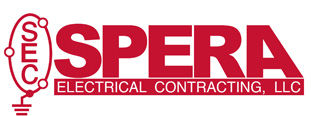RESOURCES
SAFETY TIPS
Spera Electric recommends these safety tips. You can contact us for assistance, or to go over them in greater detail. We can also baby proof your entire home from electrical hazards.
Panel Labels
All panels should be labeled for easy location of circuits. This practice will help you stay safe if an electrical emergency should ever arise, and save money when troubleshooting during a service call.
Ground Fault Circuit Interrupters
GFCIs can help prevent electrocution. They should be used in any area where water and electricity may come into contact. When a GFCI senses current leakage in an electrical circuit, it assumes a ground fault has occurred. It then interrupts power fast enough to help prevent serious injury from electrical shock. Test GFCIs regularly according to the manufacturer’s instructions to make sure they are working properly.
Cords
Make sure cords are in good condition – not frayed or cracked – and they are placed out of traffic areas. Cords should never be nailed or stapled to the wall, baseboard, or to another object. Do not place cords under carpets or rugs or rest any furniture on them. Extension cords should never be used as a permanent wiring method.
Plugs
Make sure your plugs fit your outlets. Never remove the ground pin (the third prong) to make a three-prong fit a two-conductor outlet; this could lead to an electrical shock. NEVER FORCE A PLUG INTO AN OUTLET IF IT DOESN’T FIT. Plugs should fit securely into outlets. Avoid overloading outlets with too many appliances. Plugs should never be compressed into an outlet by furniture or a door.
Lamps
Check the wattage of all bulbs in light fixtures to make sure they are the correct wattage for the size of the fixture. Replace bulbs that have higher wattage than recommended; if you don’t know the correct wattage, check with the manufacturer of the fixture. Make sure bulbs are screwed in securely; loose bulbs may overheat.
Panel Labels
All panels should be labeled for easy location of circuits. This practice will help you stay safe if an electrical emergency should ever arise, and save money when troubleshooting during a service call.
Lamps
Check the wattage of all bulbs in light fixtures to make sure they are the correct wattage for the size of the fixture. Replace bulbs that have higher wattage than recommended; if you don’t know the correct wattage, check with the manufacturer of the fixture. Make sure bulbs are screwed in securely; loose bulbs may overheat.
Halogen Floor Lamps
Halogen floor lamp bulbs operate at much higher temperatures than standard incandescent light bulbs. Never place a halogen floor lamp where it could come in contact with draperies, clothing or other combustible materials. Be sure to turn the lamp off whenever you leave the room for an extended period of time and never use torchiere lamps in children’s bedrooms or playrooms.
Appliances
If an appliance repeatedly blows a fuse or trips a circuit breaker, it may need a dedicated circuit. If it has given you a shock, unplug it and call for service as it will have to be repaired or replaced.
Appliances
If an appliance repeatedly blows a fuse, trips a circuit breaker, it may need a dedicated circuit. If it has given you a shock, unplug it, call for service it will have to be repaired or replaced.
Outlets
Check for outlets that have loose-fitting plugs, which can overheat and lead to fire. Replace any missing or broken wall plates. Make sure there are safety covers on all unused outlets that are accessible to children or have them replaced with new child resistant outlets.
Space Heaters
Space heaters are meant to supply supplemental heat. Keep space heaters at least 3 ft. away from any combustible materials such as bedding, clothing, draperies, furniture, and rugs. Don’t use in rooms where children are unsupervised and remember to turn off and unplug when not in use.
Space Heaters
Space heaters are meant to supply supplemental heat. Keep space heaters at least 3 ft. away from any combustible materials such as bedding, clothing, draperies, furniture, and rugs. Don’t use in rooms where children are unsupervised and remember to turn off and unplug when not in use.
Circuit Breakers and Fuses
Circuit breakers and fuses should be properly rated for the wire size they are connected to. If you are unsure whether your breakers are correctly sized to the wire being used, call us so we can determine if there are any issues to address. Always replace a breaker or fuse with the same amp rating.
Smoke Alarms and Carbon Monoxide Detectors
Smoke alarms and carbon monoxide detectors only work safely if they are properly maintained. The following tips will help ensure that your devices remain in proper working order:
- Install new batteries immediately when low battery warning alarm sounds, or at least once per year
- Clean devices regularly by vacuuming them with a brush attachment
- Replace devices – smoke alarms every 10 years; carbon monoxide detectors every 7 years
If you have any concerns with the correct type, placement or age of your devices, we can do an inspection to address this.
CONTACT US
Do you want to request service, receive a quote, get a free estimate, or send us a message? Fill out the form and we will get back to you as soon as possible.

